
Candidates discuss exam questions after the exam at the exam site of Phan Dinh Phung High School, Hanoi - Photo: DANH KHANG
When commenting on the annual high school graduation exam, there is an "implicit" but strong expectation that the exam must be "popular with the public". However, this can be a "trap" that needs to be avoided because the exam is an assessment tool ineducation , not a media product.
The high school graduation exam is an activity to test the knowledge and skills of students at the end of grade 12, to evaluate learning outcomes and serve as a basis for graduation recognition, and is also one of the bases for admission to universities and colleges.
In education, assessment is an activity associated with teaching and learning, including forms such as tests, learning projects, or exams.
Assessment is also divided into process assessment and summative assessment, and the high school graduation exam is a form of summative assessment. Many countries have this exam in their education systems, such as GCSE and A level in the UK, or Gaokao in China.
There are several commonly used criteria for assessment in education that are widely recognized.
The first is validity , which means whether the assessment results are appropriate, meaningful and useful for assessing students. The current high school graduation exam has a dual function, both assessing the level of completion of high school education of students and helping to screen and differentiate candidates' qualifications so that universities have a basis to use high school graduation results for university admission.
Suppose applying to literature, if the literature exam can assess the candidates' literary knowledge of the literary works they have studied, assess their ability to use everyday language and academic language, as well as their ability to appreciate literary works in general, then it is a highly valid exam.
On the contrary, an essay topic that is full of hot current events but is not able to properly assess students' literary ability may be an "off-topic" essay topic.
The second criterion is reliability , which means ensuring stability and consistency. If the previous year's exam and the following year's exam give vastly different results (scores), then there may be a problem with reliability, or the exam is biased, giving one group of candidates an "advantage" while another group is at a "disadvantage".
The large difference between the "practice test" and the "real test" reflects the fluctuation of the test, and thus affects the reliability of the test.
The third criterion is authenticity , which means that while the test-making agency aims to evaluate the learner's "capacity", does that capacity coincide with real-life capacity, or are the capacities very different between "school" and "real life"?
In this aspect, public feedback is very important and educators need to listen to it to make adjustments.
For example, in English, the assessment objective is communication skills, especially reading and writing with a requirement of level 3 (equivalent to B1), so it is rare in language testing to differentiate content up to two or three levels higher (C1, C2).
Normally, international English exams only increase the difficulty level no more than 1 level higher than the target level to evaluate candidates who are able to exceed the requirements.
The next criterion is the washback effect , which is how the exam affects learning, or "what you study is what you test", or what you study is like in the exam.
In this regard, the Ministry of Education and Training has expressed its viewpoint towards assessing students' abilities, so if schools and students still study in the old way focusing on memorizing knowledge or practicing problem-solving skills, they will be increasingly disadvantaged with the new way of setting questions.
Concerned about the practicality of the exam
Public opinion also questions the practicality of the exam , which I think has basis.
Each educational system has a different way of handling it. Some educational systems require students to take national graduation exams like Vietnam (once a year), the UK (several A-Levels exams a year), or there is no national graduation exam like the US, but it is divided into credit-based graduation exams conducted by the school itself and general college and university aptitude tests (SAT, ACT) provided by testing organizations throughout the year.
In Vietnam, in just 2 days, the education sector solved the exam and classification for more than 1 million candidates, this is a remarkable effort, clearly demonstrating the practicality in terms of the effective use of time, human resources, and costs. However, it does not rule out that there are more optimal solutions such as computer-based exams that we need to aim for in the near future.
It is clear that the high school graduation exam is intended to serve both graduation and university admission purposes, and needs to follow the standards and criteria of educational assessment rather than impressing the public as a "media product".
However, when there is a lot of feedback that the test is not relevant to teaching and learning at school, and makes candidates worried and feel unfair... it is also necessary to "re-evaluate the assessment tool" in a scientific manner and explain it transparently.
Bui Khanh Nguyen is a bilingual education expert. He graduated with a BA in English and American Literature from Hanoi National University, and a MA in Teaching English from Benedictine University (USA).
Source: https://tuoitre.vn/rat-can-danh-gia-lai-de-thi-tot-nghiep-thpt-2025063010400424.htm











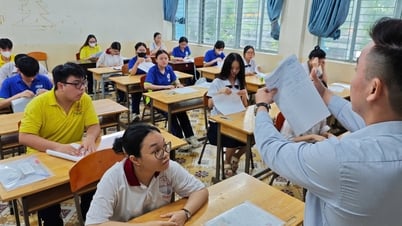










































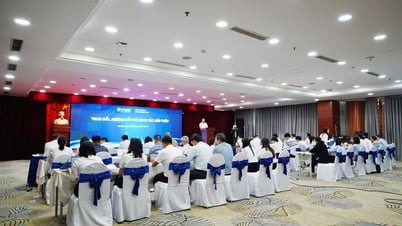




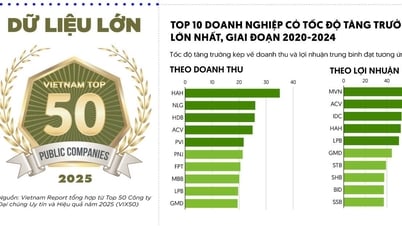




















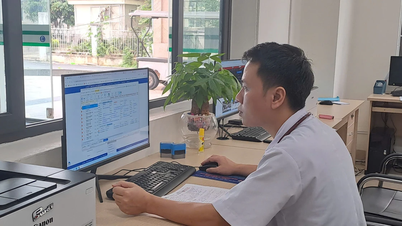




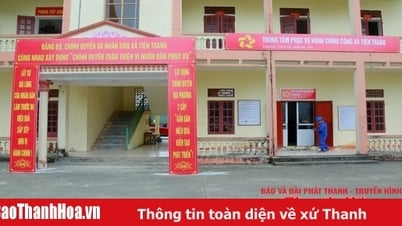



















Comment (0)